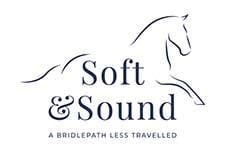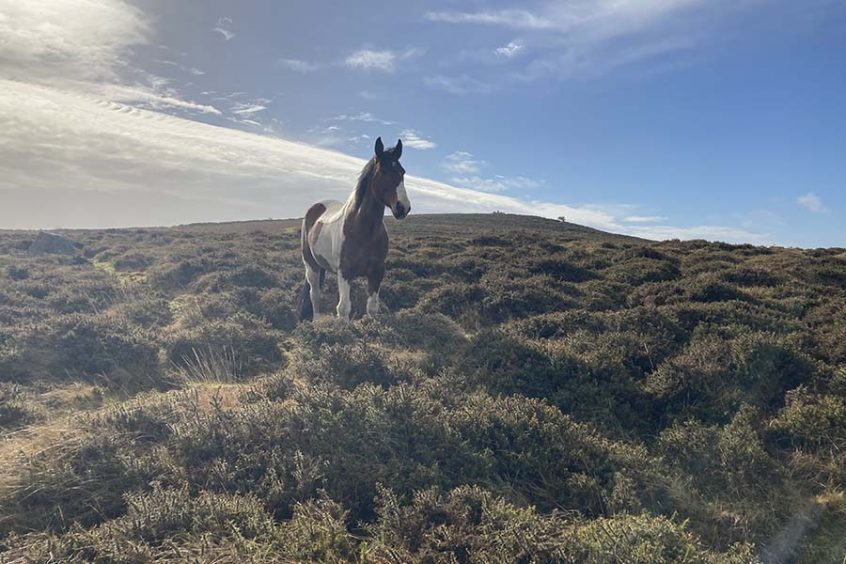There is a current trend amongst health, social care and education professionals to encourage ‘mindfulness’ practice. Just like Cognitive Behavioural Therapy was thought to be the cure all a little while ago, now Mindfulness (or even MCBT) is being touted as the solution for all our woes. The thing is, it probably could be, but what tends to happen is that people forget you have to actually practice it, it’s not enough just to talk about in the staff room, or read the odd article. It’s a bit like booking yourself onto a yoga course and then not going – the thought of going is not actually the same thing AS going (Come on, we’ve all done it…).
However, if we were to try and practice being mindful, our horses for one would probably be hugely grateful. What I understand of mindfulness is that it is a Buddhist technique or approach which any of us can integrate (there’s a social care word if ever there was one) into our lives. The Sanskrit word also translates as ‘awareness’ and is considered to be one of the key elements on the road to enlightenment.
Now, I am no expert. I have bought a book and I am only half way through it. BUT, I have looked it up on Wikipedia, so maybe I do know everything there is to know. What I do know is that so much of it resonates with how I try to be with my horses. I hadn’t been calling it mindfulness, but it is something Tom and Sarah had been banging on about for years, so I had tried my best to get a handle on what they were talking about and apply it.
The key principle most of us are probably familiar with is the one about being present. This means practicing being in the present moment and not allowing ourselves to be obsessed with worries about the future, or thinking about the past. Often a form of breath based meditation might be used to help people stay focused on the present. It’s why practices such as yoga are so good at helping us to be mindful (the irony of the word is that we are really trying to stop our ‘minds’ having so much power over us).
Being present with our horses is absolutely vital, but is something many of us really struggle with. Our horses, on the other hand, have no issues at all with it. They are pretty much entirely in the present moment all of the time. Humans are such forward thinking creatures that we find it very difficult to give ourselves wholly over to what is happening really right now and being immersed in it. I remember Tom once telling me that when I walked I leant forward, as if I was in a rush to get to the next step. It really resonated with me, as he was right. And what kind of message does being like that give to your horse? I see so many people ‘rushing’ around their horses, tacking up, moving the horse around – all completely ‘mindlessly’. But to the horse, who is mindful and present, this is a constant barrage of information.
I guess there are a number of things the horse can learn from this. They can learn to ignore it and tune it out – putting a filter on the communication they receive from the human. They can learn that the human in their life pays very little attention to anything current so they probably aren’t to be trusted. Or they can learn that that is the desired state of being, and offer that back to the person.
Being mindful means slowing ourselves up and actually ‘being’ in each thing that we do. I have tried very hard to bring this to the time I spend with my horses, and I do know it’s not easy. Especially when you are late for work and it’s raining and one of the horses has just pulled the lid of the food bin again. However, what I do know, is that going purposefully and mindfully tends to get the job done better and quicker in the long run than rushing our way through it. I also think it is unfair and insulting to our horses to NOT be present when we are with them. How can we ask them to pay heed to our tiniest signals when we are ‘schooling’, if we actually spend most of our time with them being lead by our own thoughts, and missing the moment? How can you expect your horse to pay attention to the message down the rein, if you are not placing the same importance on the message you send him down the lead rope each time you pick it up? Or for him to understand the importance of personal space if you endlessly barge in and out of his, and sometimes change the boundaries because you’re too rushed to maintain them? It’s where you have to even be really careful wandering along on a long rein chatting to your mate…
Critically, I also think it’s not just about what we do, but the way we are. I see some ‘horse people’ who are very good at maintaining clear boundaries and are utterly consistent, but have an edginess to them which does not feel very present to me. And I’m not a horse, so imagine how that must feel to them.
I read an article a little while ago about a trainer who used to take young horses into the middle of the arena and do nothing with them. He would wait until they had absolutely relaxed, were breathing completely freely and were happy to just stand still, and then would end the session. This could take some time with some horses. It would probably take a whole lot longer for most of us humans.
There are other elements to being mindful, such as being non- judgemental, which are also incredibly useful. I might even make that the subject of my next blog. But, if nothing else, maybe just take one small task with your horse and try to be completely present while you do it. Focus on each foot step that each of you take. Check each part of your body and see if there might be some tension (what are your toes doing??). Look at how you are breathing. And each time you begin to think about what you are going to have for tea tonight, just gently bring yourself back to the task in hand and pay as much attention to doing up that rug buckle as you would to learning half pass.

